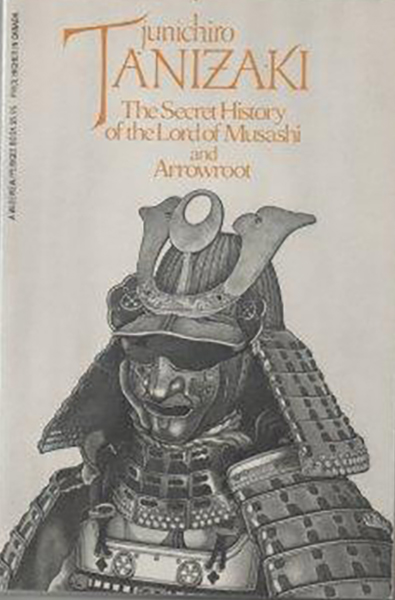Junichiro Tanizaki’s The Secret History of the Lord Musashi, translated from the Japanese by Anthony H. Chambers, is based on historical documents that he invented. Musashi is a tale that I can’t escape – a conspiracy-and-perversity crammed narrative that I will be rereading for years, as strange a story as I’ve ever encountered.
The secret history begins in 1549. As part of a reconciliation between his father and a ruling member of the Tsukuma clan, twelve-year-old Hōshimaru is held comfortably at the Tsukuma castle on Mount Ojika. When the castle is besieged for over a month, Hōshimaru longs to be included in, or at least to see, the action. We appear to be in the realm of a boy’s adventure, the story of the origins of a great warrior – and we are. But it’s to be a career in war that is completely driven by sexual fixation, with traditional takings of land and power emerging as collateral consequences of the Lord Musashi’s quest to relive one extremely specific moment.

‘It is not simply that he envied the head for having the girl dress its hair, shave its pate, or gaze at it with that cruel smile; he wanted to be killed, transformed into a ghastly head with an agonized expression, and manipulated in the girl’s hands. Becoming a severed head was a necessary condition.’
This incident, and Hōshimaru’s night mission to collect a noseless head of his own, are the intensely masochistic origins of the glorious military career that follows when he first takes the new name of Terukatsu and begins his rise to power. Tanizaki adds further interest in the character of Lady Kikyō, who will conspire with Terukatsu to avenge the mutilation of her father by – yes, of course – taking the nose of Norishige, her husband and Terukatsu’s lord.
Tanizaki’s tale seems, as one reads it, like some credible piece of history that was too odd to emerge from secrecy. It’s stylistically unforgettable, a real magic trick of false archival work, shadow-rich description, and the believability of an inescapable sexual fixation that seems completely modern, placing The Secret History of the Lord of Musashi just slightly outside of time.






